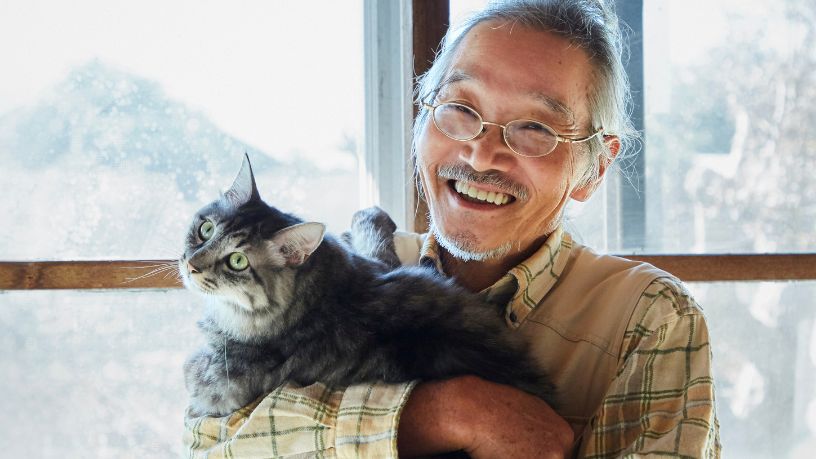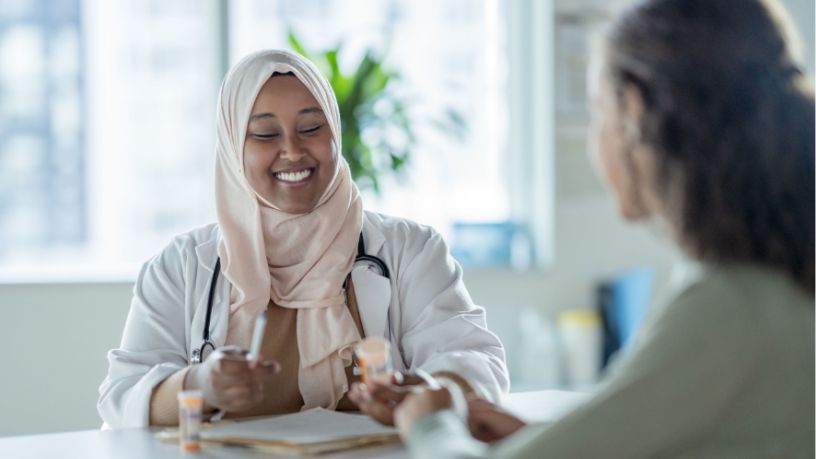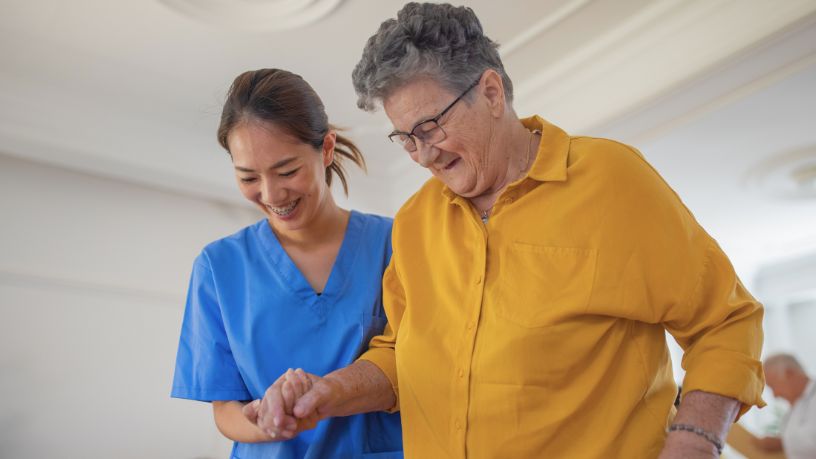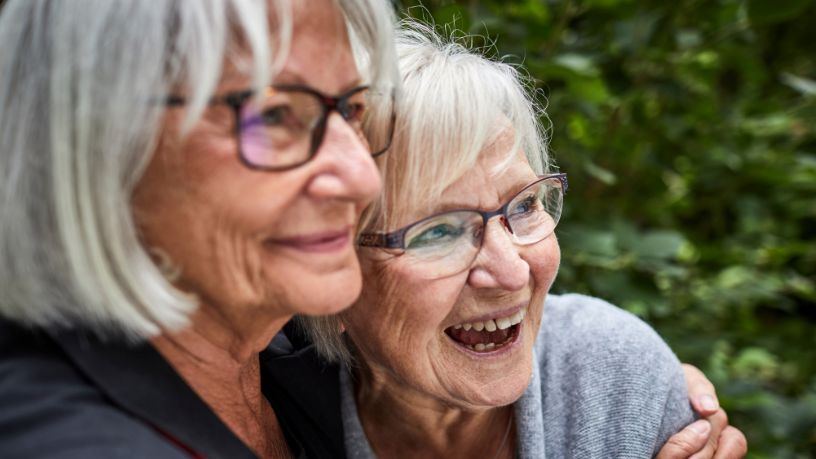Stroke rehabilitation is an individual process that helps survivors regain independence and prevent future strokes.
On this page
Key takeaways
Early rehabilitation and consistent therapy can significantly improve physical, cognitive, and emotional outcomes.
Stroke recovery is a team effort involving various physical and emotional support specialists.
Recovering from a stroke is a journey that continues long after you leave the hospital. Known as stroke rehabilitation, it helps survivors regain lost skills, adapt to a new lifestyle and improve their quality of life.
Since no 2 strokes are the same, stroke rehabilitation programs are customised to individual needs but focus on 2 key goals: helping the person live independently and preventing future strokes.
Stroke rehabilitation can begin within 24 to 48 hours after a stroke and once your condition is stable, even if you're still in hospital. Early and consistent rehabilitation can significantly increase the chances of reducing the effects of a stroke and regaining strength, mobility and cognitive function.
Why stroke rehab is important
Stroke rehabilitation can help you relearn or find new ways of doing things that may have been affected by your stroke. The program might include activities that help manage muscle strength and coordination, thinking and memory, and range-of-motion exercises.
Neuroplasticity (the brain's ability to adapt and rewire itself) forms the core of stroke recovery. A stroke damages certain areas of the brain but the healthy parts learn to take over lost functions.
Every exercise, movement or word practiced during rehabilitation can strengthen these new neural connections. For example, a person relearning language might start with repeatedly saying simple words and sounds.
However, this process takes time, repetition and persistence. This is where a stroke rehabilitation team plays a crucial role.
Heart health coaching
The COACH Program® provides over the phone guidance, information and support, at no extra cost for eligible Bupa members, following a heart attack, stroke, or other cardiovascular event.
Your stroke rehabilitation team
Stroke rehabilitation is a team effort, and you'll work with various specialists to help restore body function.
The first healthcare professionals you meet will likely be a physiotherapist and a speech pathologist. The former focuses on mobility and physical strength while the latter addresses language, swallowing, and communication challenges.
Once you're discharged from hospital, your stroke rehabilitation team will expand to include:
- occupational therapists to help with daily tasks, such as dressing and eating
- psychologists or counsellors to provide emotional and cognitive support
- nurses and doctors to monitor overall health and progress.
How long will your stroke rehabilitation take?
This varies from person to person and could span a few weeks to a few months or even a few years. What you can expect is a pattern of rapid improvement in the early weeks, followed by slower, steady progress.
There is no single stroke recovery and rehabilitation timeline, but the longer a stroke remains unmanaged, the greater the chance of stroke-related brain damage.
Tips for maximising recovery
- Set realistic goals. Break larger goals into smaller, achievable steps. Celebrate each success, no matter how small, to stay motivated.
- Stay consistent with therapy. Even short, frequent sessions are better than long, infrequent ones.
- Embrace assistive tools. Devices like handrails, adaptive cutlery, and mobility aids can promote independence and build confidence.
- Use repetition and variety. Repeating tasks strengthens neural pathways, and introducing variety helps improve adaptability.
- Get plenty of rest. Fatigue is common after a stroke, so balance rest with activity to prevent burnout.
Stroke rehabilitation is a challenging but important and transformative process. With the right mindset, a dedicated team and a strong support system, many survivors regain independence and improve their quality of life.
Resources
Stroke Foundation of Australia offers comprehensive guides on prevention, treatment and recovery.
Stroke Association of Victoria runs an online stroke support program that provides stroke survivors and their carers with skill development activities, educational talks and social connection with peers.
Healthdirect offers guidance on stroke recovery, rehabilitation services and access to health professionals in Australia.
Enable Me is a dedicated online platform offering information, tools and a supportive community for stroke recovery.
Carer Gateway has resources and support for caregivers assisting stroke survivors.

At Bupa, trust is everything
Our health and wellbeing information is regularly reviewed and maintained by a team of healthcare experts, to ensure its relevancy and accuracy. Everyone's health journey is unique and health outcomes vary from person to person.
This content is not a replacement for personalised and specific medical, healthcare, or other professional advice. If you have concerns about your health, see your doctor or other health professional.
You might also like...
Understanding stroke: Causes, types and prevention
A guide to understanding stroke, responding to one and taking control of your healthcare.
9 ways to make the most of your GP check-up
Doctor’s appointments can feel overwhelming and there can be a lot to get through in a short amount of time. So how can you get the most out of your GP visit?
Stroke and the brain: Understanding damage, recovery and healing
Find out about how stroke affects different areas of the brain and body functions, and the brain’s remarkable ability to heal and recover.
Stroke and heart health: Understanding the vital connection
Discover how stroke and heart health are connected, common risk factors for both, and the easy, practical ways you can protect your heart after a stroke.





